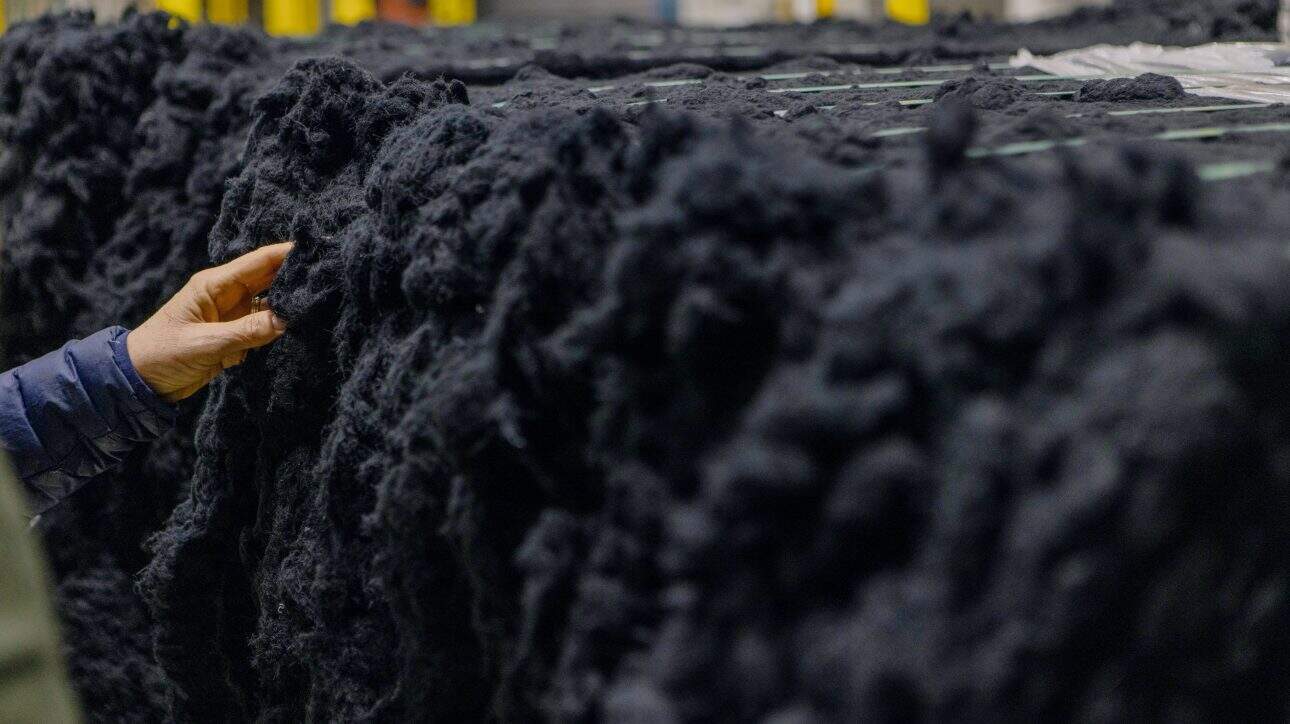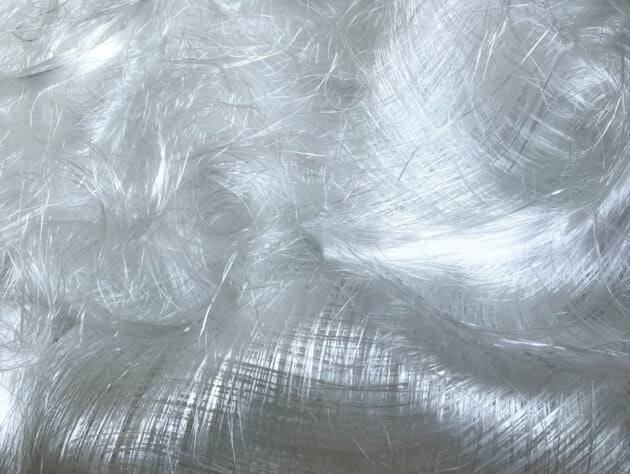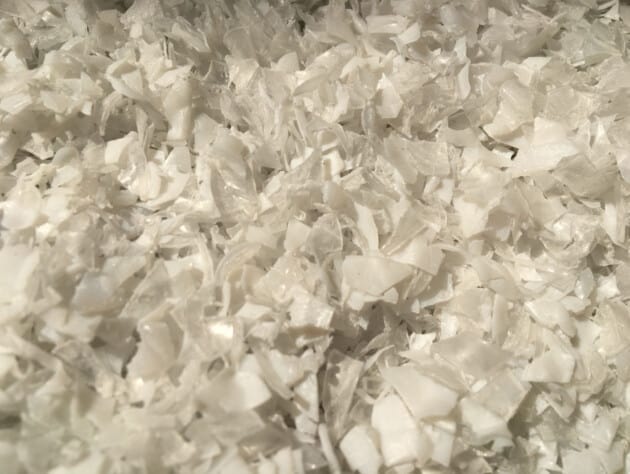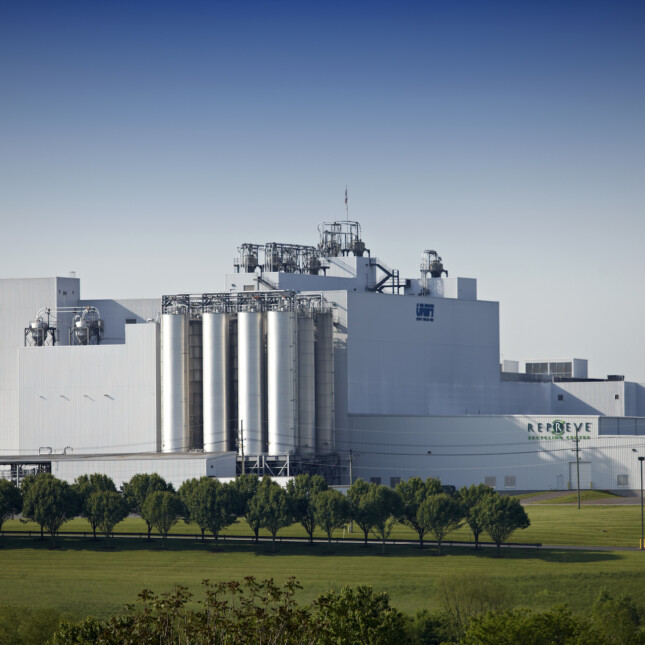Polyester is the most widely used fiber worldwide.

About
From performance to price, there are many reasons why brands rely on polyester. It accounts for over half of the global fiber market, according to our Preferred Fiber Materials Market Report 2021. Strong, durable, crease-resistant, and quick to dry, it makes up about 80% of all synthetic fiber use, and is used widely in clothing, accessories, home furnishings, and footwear.
Challenges
Polyester production comes at an environmental cost.
We know that virgin synthetics are damaging to our environment. Conventional polyester is made from fossil fuel-based chemicals, the primary raw material of which is crude oil. The commercial production of conventional polyester requires ethylene and ethylene glycol, as well as para-xylene, which is used to produce terephthalic acid (TPA). Together these chemicals produce polyethylene terephthalate, or PET.

Solutions
We’re helping to lead the industry away from fossil-based polyester.
We’re supporting the fashion and textiles industry in switching to fibers and materials that have better environmental and social outcomes than their conventional alternatives. Our goal is for synthetic fiber production to play its part in the wider move towards climate-friendly sourcing. We want to encourage the use of recycled or regenerative materials and let no new virgin fossil-based fibers enter the system.

TAKE ACTION
Move away from virgin polyester
Look to close the loop
Post-consumer recycled bottles are commonly used to produce recycled polyester today, but we don’t want to incentivize their production. Companies can invest in circular solutions such as textile-to-textile recycling by partnering with recyclers and other links in the supply chain.

Invest in innovation
Biobased polyester, produced using renewable raw materials such as sugar cane, is a promising alternative, but it’s still in development. Investing in research to help bring new materials to market is essential to reduce dependence on virgin polyester.

Connect consumers to the story
Companies can raise awareness of the dangers of plastic among consumers by promoting recycling polyester through storytelling. By driving demand for recycled materials, brands can make a stronger business case for investing in recycled inputs.

Get Involved
Take the next steps in your sourcing journey
RCS & GRS
Our industry standards for recycled fibers
The Recycled Claim Standard (RCS) and Global Recycled Standard (GRS) are voluntary global standards that set the requirements for third-party certification of recycled input and chain of custody. Their aim is to increase the use of recycled materials.

Materials Production Dashboard
Get the latest data
You can access our latest data on production volume for polyester in our Materials Production Dashboard.

Frequently Asked Questions
If you have a question not answered here, get in touch with us directly, and we’ll be happy to answer it for you.
Why aren’t we focusing on phasing out synthetics completely?
Even with brands rethinking growth and slowing down production, there’s no other fiber available on the market today that could absorb the demand for polyester. We know this dependency won’t disappear overnight, so we’re committed to making sure synthetic fibers are used as responsibly as they can be.
What exactly is recycled polyester?
Recycled polyester comes from any polyester-based source that’s been mechanically or chemically recycled to create a material that matches the quality of virgin polyester as closely as possible.
What are some of the shortfalls of recycled polyester today?
Using recycled polyester is one way we can prevent new virgin fossil-based synthetics from entering the supply chain. We can use what we’ve already got in the system instead. But one of the shortfalls of some recycled polyester materials is their ability to be recycled over and over again. That’s why we see one key focus area in the future of synthetics as improving and scaling solutions like textile-to-textile recycling, as well as developing next-gen alternative materials.
